Within the Model browser there are six predefined browser view modes: Model, Include, Component, Material, Property, HyperBeam, and Optimization (appear only for the Optimization supported user profiles, currently it is only the OptiStruct user profile). The different view modes are located within the first row of icons in the Model browser.

Model browser view modes in Optistruct user profile
Quick access to an already existing view in the Model Browser is possible by double-clicking on the entity folder. For example, double-clicking the Components folder will take you to the Component view. Similar setup is also available for Include files, properties, materials, and beam sections.

Select the different view modes to quickly display specific entities in the Model browser and graphics area. After you select a view mode, HyperMesh provides additional information associated with the entity in the Model browser. Use the Optimization View mode to not only control the display, but to also create optimization problem definitions.
You can use the browser view modes in conjunction with the selector mechanism to easily find and query entities.
The key traits of each view are as follows:
This is the standard view mode for the Model browser:
| • | All entities within the session will be listed in the tree. |
| • | Include full display control for all applicable entities--allowing alteration of mesh or geometry visualization, for example, or making entities visible or invisible. |
| • | Double-clicking on the folder (Include, Component, Material, Property) opens its respective view in the Model browser. |
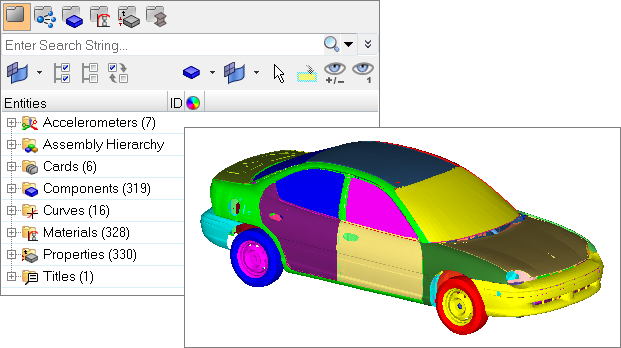
|
| • | All entities within the session will be listed in the tree. |
| • | Include full display control for all applicable entities--allowing alteration of mesh or geometry visualization, for example, or making entities visible or invisible. |
| • | Double-clicking on the folder (Component, Material, Property) opens its respective view in the Model browser. |
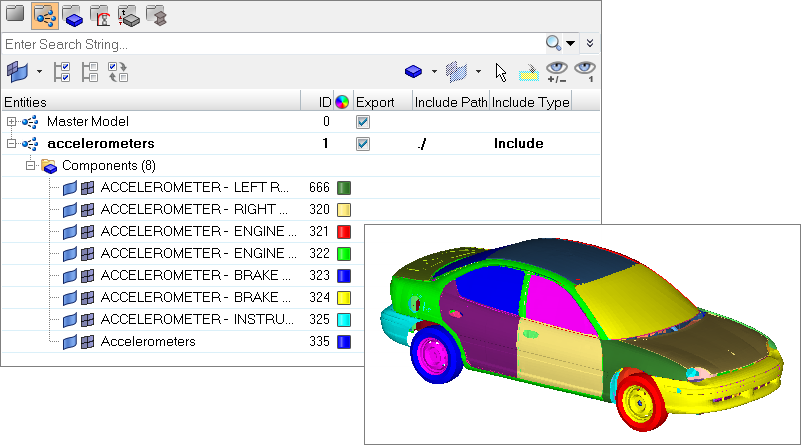
|
| • | Turns off all other entities in the browser and lists only components in a flat list. |
| • | Turns on FE and Geometry style columns |
| • | Populates Indirect Property and Material columns (dependant on user profile) |
| • | Includes the Direct Property column, from which you can toggle between direct/indirect property assignment. |
| • | Visualization mode is set to By Comp |
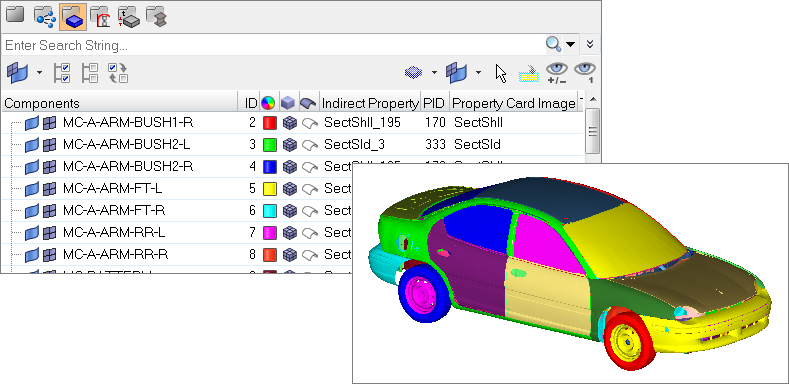
|
| • | Turns off all other entities in the browser and lists only materials in a flat list |
| • | Type and Card Image columns are turned on |
| • | Visualization mode is set to By Mat |
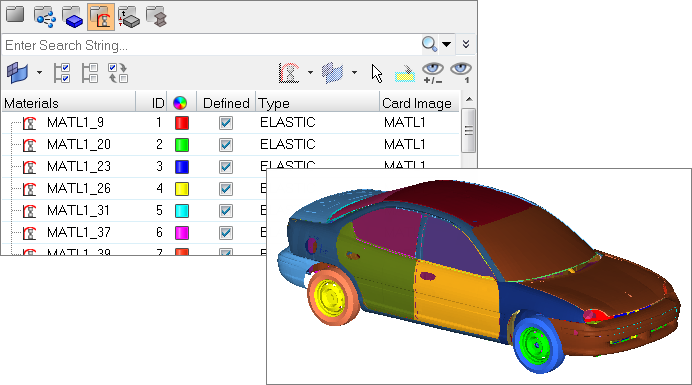
|
| • | Turns off all other entities in the browser and lists only properties in a flat list |
| • | Type and Card Image columns are turned on |
| • | Visualization mode is set to By Prop |
| • | A new button for element visualization by direct or indirect property is added. |
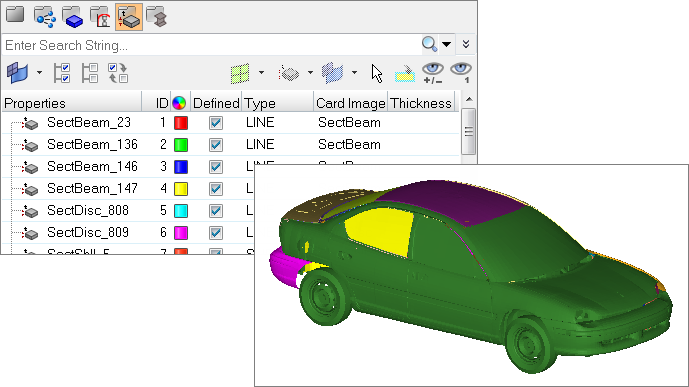
|
| • | The optimization view is only available when the OptiStruct user profile is set. |
| • | Turns off all other entities in the browser and lists only optimization related entities |
| • | Visualization mode is set to By Comp. |
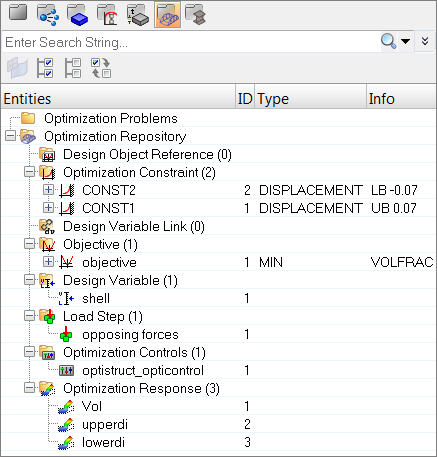
|
The optimization view can be used to define optimization problems and objectives. Click here for a more detailed description of the capabilities of this view.
Unlike other views, the HyperBeam view does not affect the overall model's display; instead, it focuses entirely on beam elements and enables the visualization, creation, and editing of beam sections and beamsection collectors.
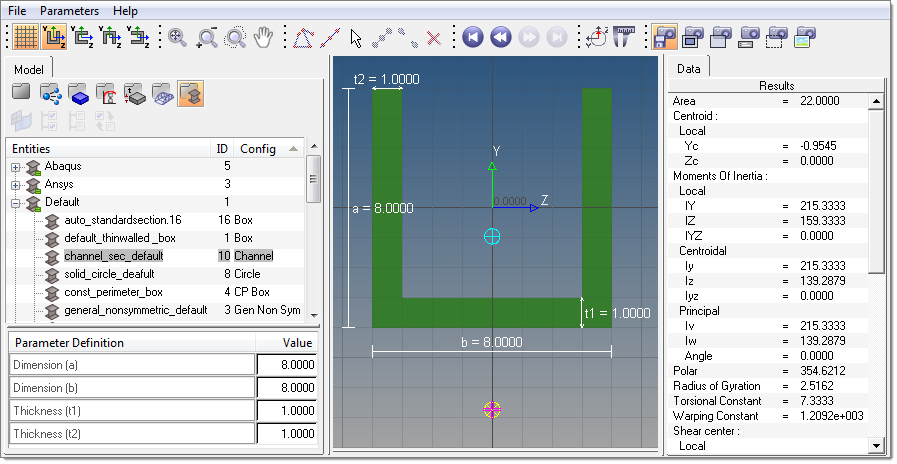
|








![]()
